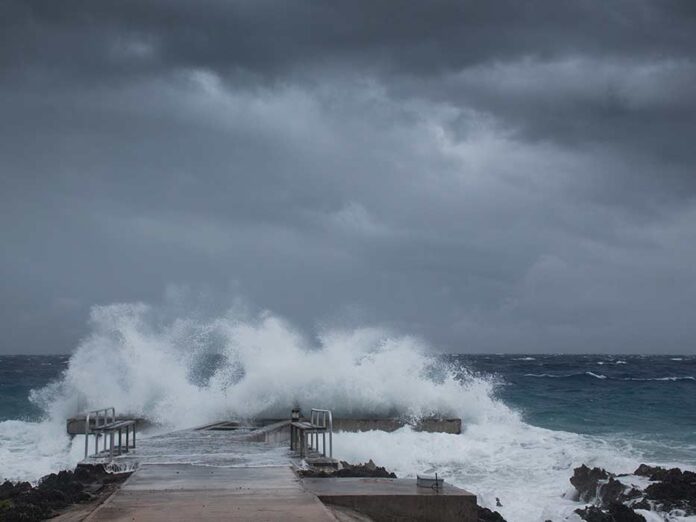 Hurricane season has begun, and the Florida Department of Health (Department) is joining the Florida Division of Emergency Management in encouraging all residents and visitors to prepare for severe weather emergencies. Determine any risks to your home, property, or business, and update your emergency plans and supplies before Florida is threatened by a storm. It is important to stay prepared before and after a storm.
Hurricane season has begun, and the Florida Department of Health (Department) is joining the Florida Division of Emergency Management in encouraging all residents and visitors to prepare for severe weather emergencies. Determine any risks to your home, property, or business, and update your emergency plans and supplies before Florida is threatened by a storm. It is important to stay prepared before and after a storm.
“It’s time for every Florida resident and visitor to prepare for hurricane season and put a plan in place,” said State Surgeon General Dr. Joseph Ladapo. “With this week being the start of hurricane season, it is a great opportunity for Floridians to obtain essential supplies and prepare for possible impacts of hurricane weather.”
Make a Plan
It is essential that individuals have a plan before a disaster occurs. Following an emergency or disaster, you may lose access to basic services, such as power and water, and be subject to limited or no access to essentials like food and water. Visit the Florida Department of Emergency Management’s “Plan and Prepare” webpage for guidance on making an emergency plan for your family or business.
Sales Tax Holiday for Disaster-Preparedness Supplies
Passed by the Florida Legislature and signed into law by Gov. Ron DeSantis, the sales tax holiday began Saturday, May 27, 2023, and extends through Friday, June 9, 2023. A second exemption period will begin Saturday, August 26, 2023, and extend through Friday, September 8, 2023. For more information and a list of qualifying items, please see the Florida Department of Revenue’s Taxpayer Information Publication on the 2023 Disaster Preparedness Sales Tax Holiday.
Make a Kit
As we stay on the lookout for upcoming storms, think about what to keep on hand in order to be prepared. The Florida Division of Emergency Management recommends that you maintain a well-stocked emergency preparedness kit to last you and your family for a minimum of seven days. Each individual or family disaster supply kit differs based on personal needs. Review the list below for the basic items to include in your kit.
- Water: Enough for drinking, cooking and sanitation purposes—pack a minimum of 1 gallon daily per person for 7 days.
- Food: Non-perishable packaged or canned food and juices, snacks and foods for those with dietary restrictions (e.g., infants and people with diabetes).
- Cooking Supplies: Manual can opener, cooking tools and fuel, paper plates, and plastic utensils.
- Flashlight and Extra Batteries
- Pillows, Blankets and/or Sleeping Bags
- Clothing: Complete change of clothes suitable for the current climate and include sturdy shoes to protect feet from debris or other sharp objects post-storm.
- First Aid Kit, Prescription Medication, and Other Medicines: Include a first aid kit and plan to bring medications that you need. After a storm, you may have limited supplies of your prescription medications and your local pharmacy may close. Keep an updated list of each medication you take, its dosing instructions, and the name and contact information of the prescribing doctor.
- Radio: Battery operated and NOAA weather radio.
- Toiletries
- Cleaning Supplies: Garbage bags, moisture wipes and other items.
- Cash: Banks and ATMs may not be open or available for extended periods following a disaster.
- Important Documents: Store all critical documents in a waterproof container and save electronically. Documents like insurance, medical records, bank account numbers, Social Security card, etc.
- Contact List: Keep an updated list of all important contacts, including doctors, friends, relatives, out-of-state friends, or relatives.
- Special Items: Assess all family member needs. Plan for infants, elderly and individuals with access and functional needs (e.g., medical items and baby bottles).
- Pet Care Items: Proper identification, immunization records, ample supply of food and water, carrier or cage, medications, muzzle and leash, and a photo of you and your pet together to validate ownership.
Know Where to Find Shelter
The time may arise when you may need to evacuate your home to go to a safer place. In certain situations, it may be safest for you to evacuate to a more secure location like a shelter. A hurricane evacuation shelter is a refuge of last resort; a place to go if you are not able to evacuate to a hotel or the home of a relative, friend, or co-worker. Hurricane shelters are also available for people who have no other place to go. The Florida Division of Emergency Management maintains a list of open shelters on their website.
If you know or care for an individual with a disability or special need, such as a medical condition that requires assistance but not hospitalization, you should pre-register with the Florida Special Needs Shelter Registry. Registering through the Florida Special Needs Registry allows local emergency management officials to provide important information and quickly assist you during an emergency. For more information, call your county’s emergency management office or visit the Florida Special Needs Registry at https://snr.flhealthresponse.com/ .
If you are eligible for a Special Needs Shelter, your kit should include the following:
- A list of medications and dosage
- A 30-day supply of medications
- Vital medical equipment for those who may be electrically or oxygen dependent
- Back-up energy sources for essential medical equipment
- Any special dietary needs or food
- Personal information including:
- Photo ID
- Insurance card
- List of emergency contacts
- Your primary care provider’s contact information










